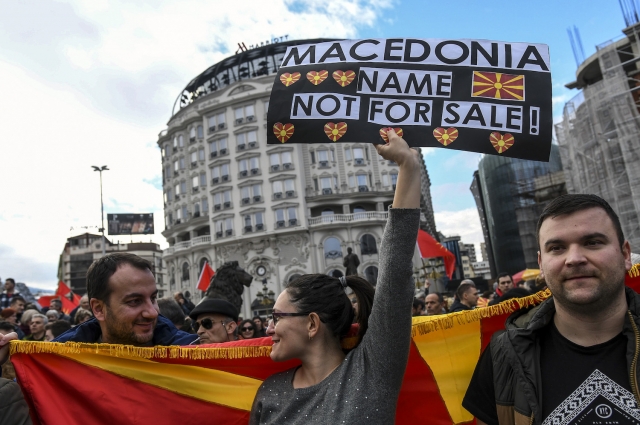Macedonia and Greece Settle on New Name in Historic Agreement
Macedonia and Greece have finally come to an agreement on the name dispute that has been a major concern for the last 27 years. Macedonia will now be called the Republic of North Macedonia, or Severna Makedonija in Macedonian. Greece has blocked Macedonia’s aspirations to join both the European Union and NATO due to dissatisfaction over the name ‘Macedonia,’ which is also the name of an historical region of northern Greece. Macedonia joined the United Nations under the provisional name the Former Yugoslav Republic of Macedonia (FYROM).
On June 12, Macedonian Prime Minister Zoran Zaev told a news conference "There is no way back," after a telephone conversation with Greek Prime Minister Alexis Tsipras.
In a televised statement, Tsipras expressed positivity about the agreement, saying it would clearly distinguish the country of Macedonia and the Greek province of Macedonia. Zaev was also pleased, saying the deal preserved Macedonian ethnic and cultural identity.
The formal text of the agreement is expected to be signed by the end of the week. It must then be ratified by Macedonia’s parliament, followed by a public referendum, and finally a change to Macedonia’s constitution. Once these steps are completed, the Greek parliament will ratify the agreement. The accord recognizes the country’s language as Macedonian and makes clear that it is a Slavic language, unrelated to Greek or ancient Greek heritage. Zaev says that citizens will be known as Macedonians or citizens of the Republic of North Macedonia.
Tsipras was satisfied with the deal, saying it “covers all the preconditions set by the Greek side,” and that "Maybe what has the most historic gravity and value for Greece [is that] according to this accord...our northern neighbors don't have, and cannot assert, any link to the ancient Greek culture of Macedonia."
Leaders around the world praised the historic agreement, including NATO Secretary-General Jens Stoltenberg, who said the move “will set Skopje on its path to NATO membership. And it will help to consolidate peace and stability across the wider Western Balkans.”
The European Union also spoke out, congratulating the two leaders for their "determination and leadership in reaching this historic agreement."
"We now look forward to the [European] Council endorsing our recommendation of 17 April to open accession negotiations with the Former Yugoslav Republic of Macedonia in June," EU foreign-policy chief Federica Mogherini and EU Enlargement Negotiations Commissioner Johannes Hahn said in a joint statement, using the current provisional name for the country.
Neighbor Albania also has EU aspirations, and officials there said the agreement was a positive step for the whole of the Western Balkans. Albanian Prime Minister Edi Rama wrote on Twitter "Balkans are today a better place thnx to you both.”
On June 2, masses of people gathered in Skopje in opposition to the agreement, and on June 6, multiple Greek cities saw similar anti-deal protests. Macedonia’s right-wing opposition party VMRO-DPMNE lead opposition to the compromise. Talks attempting to resolve the name dispute have gone on for years, brokered by the United Nations, with little success until now.
Since Macedonia became independent from Yugoslavia in 1991, Greece has raised objections to the name Republic of Macedonia, fearing that Macedonia would attempt to make a territorial claim over Greece’s province of Macedonia, which borders their northern neighbor. The province is the largest and second most populated in Greece, and sees the country’s highest number of tourists annually.
By Samantha Guthrie
Photo: Foreign Policy












